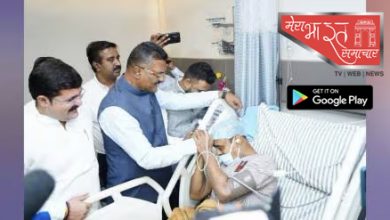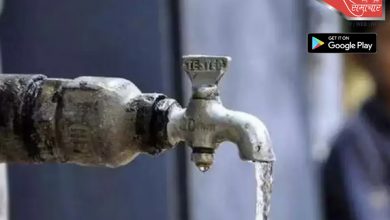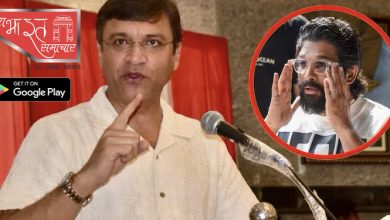Stop Hate Speech: Supreme Court directs GOI to take action
On September 21, the Supreme Court, once again, sharply criticised television news channels for airing hate speech and silencing other speakers and participants while expressing concern over the rising frequency of such remarks across the nation. The Government of India was ordered by the Supreme Court to respond to the Law Commission of India’s recommendations within two weeks. Justices K.M. Joseph and Hrishikesh Roy made up the division bench that also observed that they will look at the present law’s insufficiency to effectively address hate speech.
The bench was hearing a batch of eleven writ petitions which seek the directions to regulate hate speech. Among the batch were petitions filed against the “UPSC Jihad” show aired by Sudarshan News TV, speeches made at Dharam Sansad meetings, and pleas seeking regulation of social media messages communalising the COVID pandemic. LiveLaw reported that the Supreme Court bench first expressed its serious concern at the news channels running unregulated, even exclaiming “Where is our nation headed!”. The Court then went on to emphasise the need of having a strict regulatory framework against hate speech and questioned the Indian government as to “why it is standing as a mute witness while all this is happening?”
CJP is dedicated to finding and bringing to light instances of Hate Speech, so that the bigots propagating these venomous ideas can be unmasked and brought to justice. To learn more about our campaign against hate speech, please become a member. To support our initiatives, please donate now!
The order of the Supreme Court, referring to the 2017 Law Commission of India report, quotes:
“6.31 Hate speech generally is an incitement to hatred primarily against a group of persons defined in terms of race, ethnicity, gender, sexual orientation, religious belief and the like (sections 153A, 295A read with section 298 IPC). Thus, hate speech is any word written or spoken, signs, visible representations within the hearing or sight of a person with the intention to cause fear or alarm, or incitement to violence.
6.32 Hate speech poses complex challenges to freedom of speech and expression. The constitutional approach to these challenges has been far from uniform as the boundaries between impermissible propagation of hatred and protected speech vary across jurisdictions. A difference of approach is discernible between the United States and other democracies. In the United States, hate speech is given wide constitutional protection; whereas under international human rights covenants and in other western democracies, such as Canada, Germany, and the United Kingdom, it is regulated and subject to sanctions.
6.33 In view of the above, the Law Commission of India is of considered opinion that new provisions in IPC are required to be incorporated to address the issues elaborately dealt with in the preceding paragraphs. Keeping the necessity of amending the penal law, a draft amendment bill, namely, The Criminal Law (Amendment) Bill, 2017 suggesting insertion of new section 153C (Prohibiting incitement to hatred) and section 505A (Causing fear, alarm, or provocation of violence in certain cases) annexed as part of the 2017 Law Commission Report was specifically flagged by the SC in its September 21 order.
Ironically enough, the Bharatiya Janata Party (BJP) leader and advocate Ashwini Upadhyay is one of the petitioners asking for the Law Commission’s advice to be implemented, while there is a batch of other petitions and interventions that have flagged this crucial issue. The court was also considering a petition by former Patna high court judge, ex-justice Anjana Parekh and senior journalist Qurban Ali, filed in opposing the vitriol dished out at so-called religious gatherings (Dharm Sansads) around the nation. Other petitions are against the “UPSC Jihad” show aired by Sudarshan News TV, and pleas seeking regulation of social media messages communalising COVID pandemic were also heard as part of the hearing.
During this hearing last week, the SC clearly opined that it is the (television) anchor’s responsibility to stop hate speech from occurring during TV discussions, noting the importance of the anchor’s position during TV debates. The court pointed out that while television hosts permit certain panelists to make venomous remarks, they prevent the opposite side from airing its opposing viewpoints by muting their microphones. The panel ruled that errant news anchors should face stern punishment and be removed from the broadcast. During the hearing, as reported by LiveLaw, Justice K. M. Joseph made the following comment on some television channels: “The anchor’s function is crucial. Either on mainstream television or on social media, hate speech is a problem. Most social media platforms are uncontrolled. When it comes to mainstream television channels, where we still have power, the job of the anchor is crucial because it is the anchor’s responsibility to instantly ensure that he doesn’t let someone who is spewing hate speech to continue. Unfortunately, when someone wants to speak, at times they are silenced, given little time, or even treated rudely.”
The bench further elaborated on how press freedom grants readers and viewers of news greater rights than those who are responsible for spreading it. He further added, “Freedom of expression of the press, we don’t have it separately unlike the US….there should be free debate no doubt about it but, you should also know where to draw the line because there is a huge influence particularly with the visual media….they produce a very serious effect on your brain. The freedom is (also) for the listener. The freedom of speech is actually for the benefit of the listener. How would the listener ever make up his mind after listening to a debate where it is just a babble of voice, you cannot even make out what is happening”, reported LiveLaw.
Advocate Ashwini Upadhyay, speaking on behalf of one of the petitioners, emphasised the absence of any definition for hate speech and argued that while those accused of it are currently charged under Section 153A of the IPC (Promoting enmity between different groups on grounds of religion, race, place of birth, or residence), they ultimately escape punishment. He also said that hate speech helped political parties. Senior Advocate Sanjay Hegde argued that, “the industry is unregulated and there are no sanctions” to which Ashwini Upadhyay replied, “Until hate speech is defined this will go on.” Justice Joseph then observed, “We should have a proper legal framework unless we will have a framework people will continue and the most important question, is, if it is hate speech on which we are feeding on where is our nation headed”.
The court further stated at the hearing that politicians profit the most from hate speech, and television networks provide them with a forum for it. Sanjay Hegde, senior counsel, repeated the same ideas. “Politicians and media outlets profit from such discourse. Channels are paid. Ten persons are kept in the discussion,” he added.
Underlining, again, that curbing or regulating hate speech is critical since it affects and poisons the very fabric of the country, Justice Joseph also observed, “Political parties will come and go but the nation will endure…Without a totally independent press no country can go forward, it’s absolutely important that we have true freedom, there”. He further added, “hate speech completely poisons the very fabric…It cannot be permitted”.
Highlighting the need for a regulatory mechanism and appropriate sanctions to be put in place, Justice Joseph gave the example of a news outlet that was substantially fined in the UK and opined, “That (option) is not available here. They’re not being dealt with firmly (news networks). If such a discipline is applied, they may be punished and removed off the air.” He further added, “If sanctions are effected this will go… Any anchor will have his own views, but what is wrong is when you have people of different views and you are not allowing them to express those views… in doing that you are bringing hate and your TRP is going up.” The bench further observed that freedom of the press is important and ours is not as free as the US but we should know where to draw a line.
The bench acknowledged that it was unable to replace the legislative branch’s authority and enact legislation in this area. The Vishakha verdict, which gave fundamental definitions of sexual harassment at work and suggestions for how to deal with it, was cited by the bench as its source of guidance.
Lastly, the court ordered the Indian government (Union of India) to state, on affidavit, whether it plans to adopt a legislation that forbids inciting hate speech in accordance with the Law Commission’s recommendations. In its order, the Supreme Court stated “The Union of India will clearly indicate its stand with regard to the recommendations made by the Law Commission of India namely whether it has contemplated any legislation in terms of the recommendation.” The government should not take an adversarial stand on this but assist the court, Justice Joseph further said. As referred to earlier in this piece, the Law Commission, had in 2017 specifically recommended amending criminal law and annexed to its report, a draft amendment bill, namely, The Criminal Law (Amendment) Bill, 2017 suggesting insertion of new section 153C (Prohibiting incitement to hatred) and section 505A (Causing fear, alarm, or provocation of violence in certain cases). It was these legislative amendments that were specifically flagged by the SC in its September 21 order.
Meanwhile, only 14 of the 29 Indian states have responded to the serious issues raised in these petitions. The SC has also directed a compilation of these responses. “….With the available inputs provided by the 14 States, Union of India is ordered to put in its response within a period of two weeks from today.” The States were permitted to submit separate answers by the Court. Sanjay Hegde, a senior advocate, was also tasked by the Court with compiling the States’ reply.
The order of the SC states, “In the nature of the cases, we find it necessary to request Shri Sanjay Hegde, learned Senior Advocate, together with Mr. Anas Tanwar and Mr. Mrigank Prabhakar, learned Advocates-on-Record, to assist the Court by collating all the petitions and addressing the Court. The States which are respondents in these cases may give their independent suggestions in the matter and it will be channelized through Mr. Sanjay Hegde, learned Senior Advocate.” The bench set the matter for hearing on November 23.




